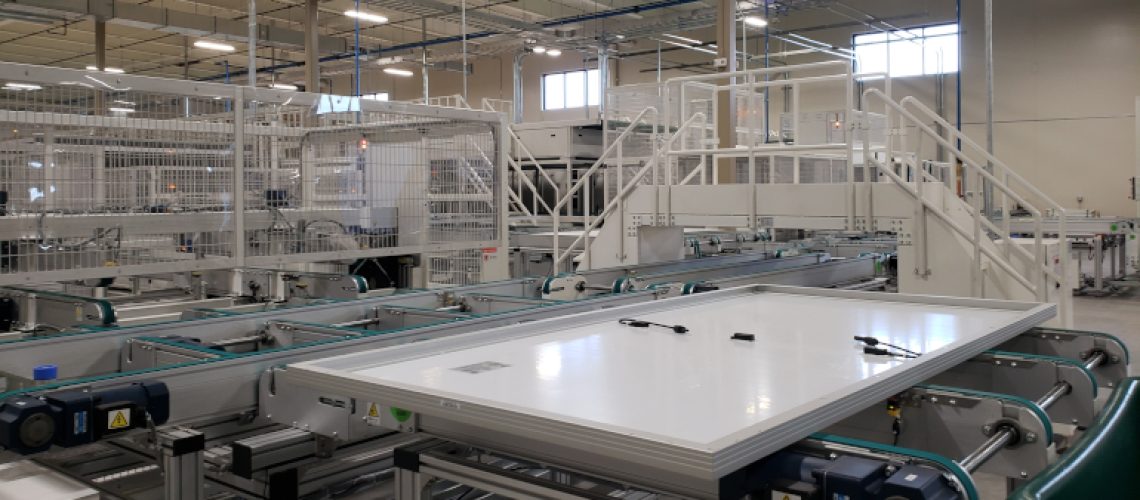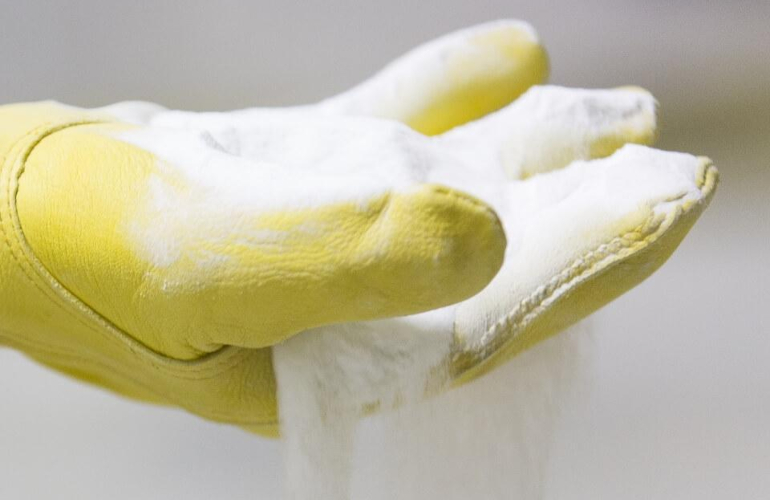Heliene officially unveiled its new solar panel assembly lines to the public this week in Iron Mountain, Minnesota. The Canadian solar panel company has been operating a 150-MW factory in Minnesota since 2018. Those lines are still making traditional 60- and 72-cell panels using legacy equipment, but now directly next door, brand new equipment will be making mono- and bifacial panels with half-cut cells at a 420-MW annual capacity plant.
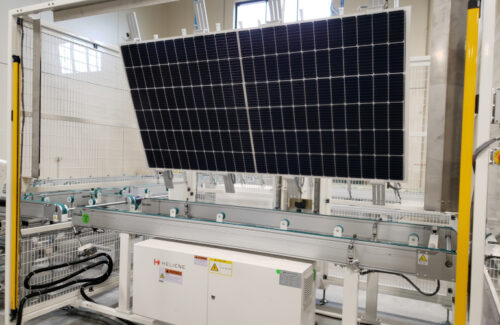
Heliene’s solar panel factory in Minnesota. Credit: Solar Power World
Solar Power World attended the ribbon-cutting event at the new Heliene manufacturing lines, along with over 100 members of the public, U.S. senators from Minnesota Amy Klobuchar and Tina Smith, state senators and local media. Martin Pochtaruk, Heliene CEO, choked up when thanking the Heliene employees at the event for getting up to work each day and making the expansion possible. The solar manufacturing expansion is a win for the local economy — 60 additional employees are being hired for the new lines, bringing Heliene’s total Minnesota job count to 100.
Although Heliene started construction on the new factory before manufacturing tax credits were included in the Inflation Reduction Act, this solar panel assembly facility is the first to open in a post-IRA world and a sign of things to come. The factory was built from the ground-up in less than a year, with the manufacturing equipment being delivered just five weeks ago. The lines should begin full test runs next week, and Heliene is already focusing on the future. Pochtaruk announced that Heliene will spend $7 million on updated equipment for the company’s original 150-MW plant, doubling the capacity to 300 MW. And this is all going to be done by July 2023.
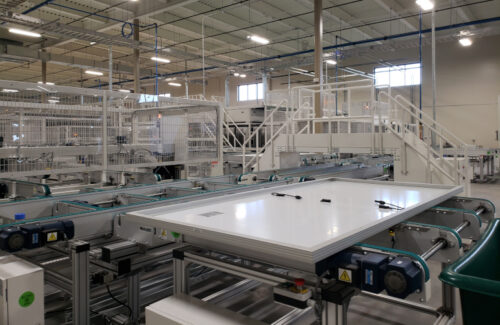
Heliene’s solar panel factory in Minnesota. Credit: Solar Power World
This will make Heliene’s Minnesota manufacturing campus the second largest crystalline silicon solar panel factory in the United States. See our list of U.S. manufacturing sites here.
A few fun facts about Heliene’s new manufacturing lines:
- The new factory now has four cell stringers accessed by two robots, which will prevent costly downtime if equipment should fail. The company’s first factory had two cell stringers accessed by one robot, which could grind all production to a halt if the older equipment hit a snag.
- The new automated equipment should reduce labor effort by 70%, making Heliene solar panels better able to compete with cheap Asian imports. The company still plans to hire 60 employees for the new lines with more coming once additional shifts are added.
- With plenty of room to expand even further and lots of local support, Heliene is looking at possibly starting solar cell manufacturing to stop depending on imports.
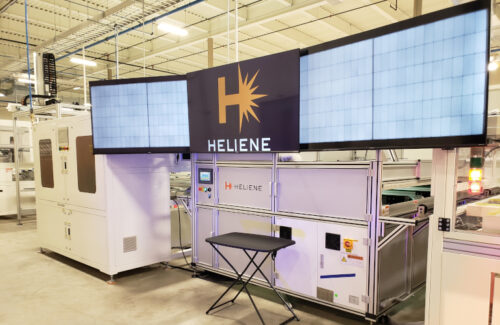
Heliene’s solar panel factory in Minnesota. Credit: Solar Power World


